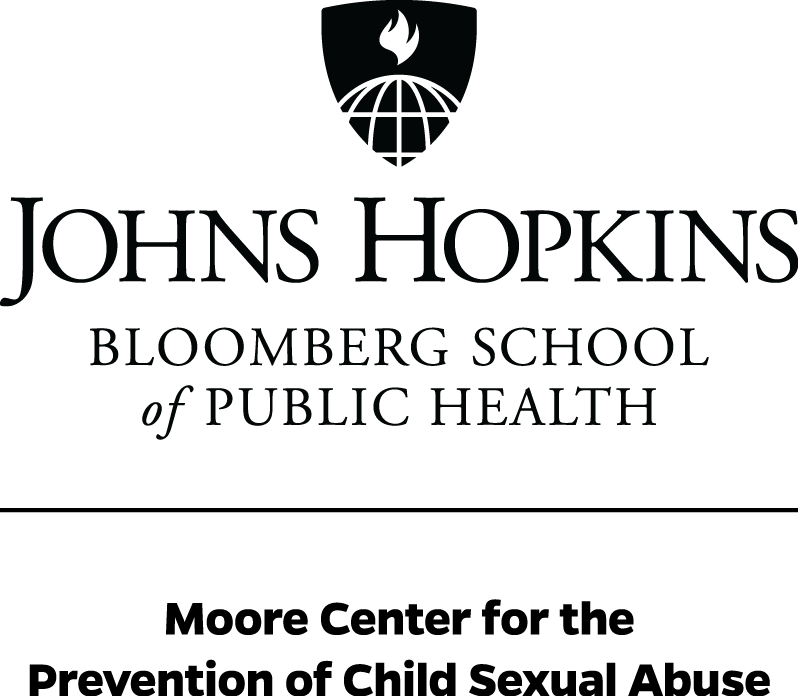Introduction
Child sexual abuse is a global problem. Studies estimate that 1 in 9 children worldwide have been or are
victims of child sexual abuse, enacting a terrible toll on children, families, and society. Notwithstanding
its prevalence, child sexual abuse is commonly misunderstood. It is preventable, but will require a variety
of solutions. Despite public misconceptions, evidence suggests that most sexual abuse is committed by
individuals known to the child, rather than strangers, and that a high percentage is committed by other
children. When child sexual abuse is committed by adults, the reasons are complex and nuanced; sexual
attraction to children is sometimes, but not always, the primary motivation.
The good news is that child sexual abuse is preventable, but it will require a variety of solutions.
Prevention Global: Translating Knowledge to Action program, implemented by the Moore Center for the Prevention of Child Sexual Abuse at Johns Hopkins University (Moore Center), in partnership with the University of Ottawa’s Institute for Mental Health Research at The Royal (The Royal), is an ambitious effort to systematically identify, evaluate, and catalogue the most promising interventions that have been developed to prevent child sexual abuse perpetration.
Through this program, the Moore Center is:
- Conducting scoping activities – Systematically reviewing the prevention landscape and identifying policies, programs, and strategies that are feasible, affordable, and scalable;
- Evaluating effectiveness – Evaluating the most promising efforts with the strong potential for scale up to determine their effectiveness in preventing child sexual abuse perpetration; and
- Cataloguing effective strategies – Developing an internationally trusted catalogue of proven perpetration prevention strategies to support their implementation and scale up.
Management Systems International (MSI) has supported the Translating Knowledge to Action program by assessing the scaling potential of 13 perpetration prevention interventions - identified by the research team - to help the team select a subset
of interventions for deeper study. The assessments considered factors including the specific characteristics of the interventions, organizational characteristics, and relevant factors of the intervention’s “home” context. The assessments relied on documentary
analysis and key informant interviews with program implementers, through which MSI identified the most significant scaling challenges and opportunities for each intervention.
This paper is a synthesis of the key findings from the scaling assessments and includes conclusions and recommendations for efforts to scale child sexual abuse perpetration prevention programs more generally.
DOWNLOAD PDF

